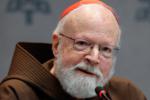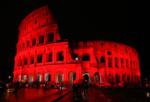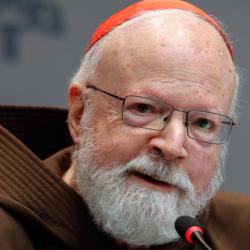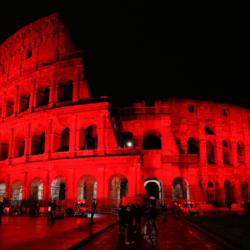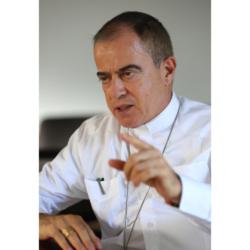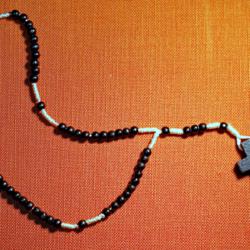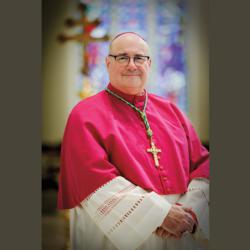A God we can rely on
The digital age has given us quicker access to a lot more information, but the deluge of facts we receive on a daily basis isn't necessarily higher quality or more reliable than what we used to get before we could google anything. Misinformation and lies have proliferated, too, and it's hard to know who -- if anyone -- we can trust.
"Do not put your trust in princes, in mortals in whom there is no help" (Ps 146:3). That's an excellent piece of advice to keep in mind as the next national political season begins to appear on the horizon. Ideologues may be able to ignore it, but evidence that no human system or leadership can save us is more than overwhelming; it's conclusive.
The problem is that we are so often directed to look to powerful people or institutions when we have needs or concerns. We're encouraged to write a letter. Vote for Candidate or Party X. Sign a petition. Boycott a company. Come to a demonstration. And while all those actions have their place, as Christians, we should avoid putting our trust in any of them.
Then there's the temptation to trust in ourselves. You know, if you want something done right, do it yourself. I don't know about you, but over the past six decades I have come to the realization that while I'm an expert when it comes to creating problems, I can't do much to solve many of my own, let alone anyone else's. Even when I've done my homework and my best, I'm not big enough to take care of everything on my own. Neither are you. Of course, it would be easier to accept that fact if we stopped taking the credit for his providence ourselves!
That's what the Israelites discovered in their 40 years of wandering in the wilderness. Leaving Egypt was the easy part. God's people weren't capable of getting themselves to where they wanted to go. And they weren't even able to adequately provide for themselves along the way. Self-sufficiency was not sufficient. Only God could be. They needed God to lead them and feed them. They needed a God they could rely on. In short, they needed God to do for them what they could not do for themselves.
As much as many of us might hate to admit it, we need God, too. While we enjoy free will and agency, like all creatures, we are dependent on the Creator by design. God wants us to depend on him rather than on ourselves. He longs for us to ask him for what we need -- to come to him for the desires of our hearts. And he has proven that we can trust him again and again.
The children of Israel usually started off on the right foot. But it didn't take long before they stopped trusting God and started trusting in themselves instead. The Book of Exodus records that the grumbling began only six weeks after leaving bondage in Egypt. The incident is recounted numerous times in the Psalms as well. "They tempted God in the hearts by demanding the food they craved. Yes, they spoke against God, saying, 'Can God spread a table in the desert?'" (Ps 78:18-19). Questions like that one arise from fear. Still, the answer was a resounding "yes." God provided manna and meat for his people every day for 40 years.
We can count on him to do the same for us, even in the desert -- even when the job offer doesn't come or the house slips into foreclosure -- and especially when we can't see or imagine any possibility of it. We may not know where our next meal is coming from. But chances are it is coming from the same place our last meal did -- from the hand of our loving heavenly Father.
So yes, we should work hard and be responsible. We should strive to do what we can to take care of ourselves and others. But then there's only one thing left to do, follow St. Peter's advice and "cast all your worries upon him because he cares for you" (1 Pt 5:7).
- Jaymie Stuart Wolfe is a Catholic convert, wife, and mother of eight. Inspired by the spirituality of St. Francis de Sales, she is an author, speaker, and musician, and provides freelance editorial services to numerous publishers and authors as the principal of One More Basket. Find Jaymie on Facebook or follow her on Twitter @YouFeedThem.



